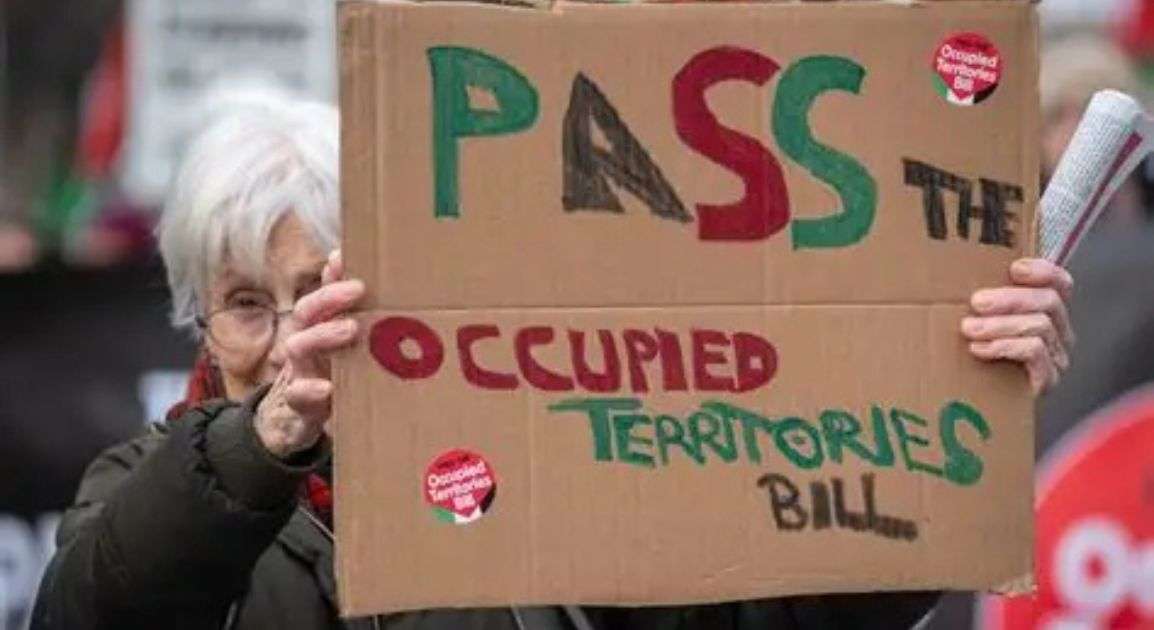Irelands Frontrunner President Catherine Connolly criticized the Irish government for delaying its sanction trade linked to Israeli settlements in occupied Palestine regions. Connolly, an independent leftwing lawmaker backed by the main opposition Sinn Fein party, warned Dublin to not weaken the bill, so it only covers tiny flow of goods while excluding services – a move she described as an “unforgivable betrayal” Of Ireland’s stated support for Palestine’s rights.
The bill, often called as the Occupied Territories Bill, the initiative started out as legislation presented by Senator Frances Black in 2018 to forbid imports and other commercial trade associated with Israeli settlement in the West Bank and East Jerusalem. The government has been developing its own draft; which according to the public reports, would initially prohibit the import of commodities (not necessarily services). Certain campaign groups, supporters, and Frances Black have pushed hard for services to be included. While critics view it as politically risky and potentially damaging relations with many allies.
Pressure From US Companies and Lawmakers
Big US companies and lawmakers warned Dublin that broad ban could conflict with US anti-boycott rules or otherwise will strain US-Ireland commercial ties. Earlier this month, a bipartisan group of US legislators sent letter to Irish Prime Minister stating that passing of this bill could bring damage to relation and American companies in Ireland.
Irelands government is the most outspoken about the Israel assault of Gaza but, unlike others it hosts the European headquarters of some of the biggest US companies, making it vulnerable to US pressure. Mainly about 11% of Irish workers are mostly employed by American multinational corporation and pay most of the corporate tax, which accounts for nearly one-third of all Irish tax revenues.
Ireland sells about one-third of all the goods to US, last year Ireland sold over 72 billion euros worth of goods to the US. That is much more than it buys from US, due to this imbalance in trade Trump criticized Ireland. He sees it as unfair and wants to address it
The Irish government has not yet confirmed whether the final draft will exclude services. The lobbying by US business groups could lead to narrowing the bill. The corporate and diplomatic pressure is the specific thing Connolly says the government must resist.
Connolly’s Political Message
The frontrunner President has criticized the Irish government for “dragging their feet” On legislation and not being courageous enough, she said that simple measure not enough, instead action matching the rhetoric is needed. Connolly insists that the bill must include both goods and services; she strongly opposes “watering it down to goods only”. She believes such a limitation an “appalling capitulation to corporate interest and betray”
Critics and supporters
The supporters of this bill view it as a necessary step towards aligning the nation’s foreign policy with its human right values. They believe that this bill is also a statement of solidarity with Palestine people. Many see the bill as symbolic action that could inspire other nations to take similar actions. It also garnered support from various political parties and civil society organizations; these groups argues that the bill would demonstrate Ireland’s commitment to standing up for human rights. Although the bill is anticipated to have economic impact, supporters claim that the ethical consideration outweighs the economic concerns.
On the other hand, the critics argue that imposing sanctions on the service linked to the Israeli settlement could deter these companies from investing in Ireland, leading to job loss, and reduced economic growth. The bill if implemented in its current form, might make Ireland a less attractive spot for investors. This could also possibly damage US-Irish relations and impact American companies operating in Europe. According to certain legal experts, the law might be in violation of international agreements or trade regulations of the European Union, which could result in legal issues.
A Symbolic but Significant Test
As the debate over sanctions and economic intensify, Ireland has caught itself between principle and pragmatism. Dublin’s hesitation has shown the growing divide between the electorate who wants Ireland to reclaim its traditional role of being unafraid to challenge major powers or market interests. In a growing global division, the outcome of this political conflict will define Ireland’s definition of neutrality as well as the tone of its foreign policy.





